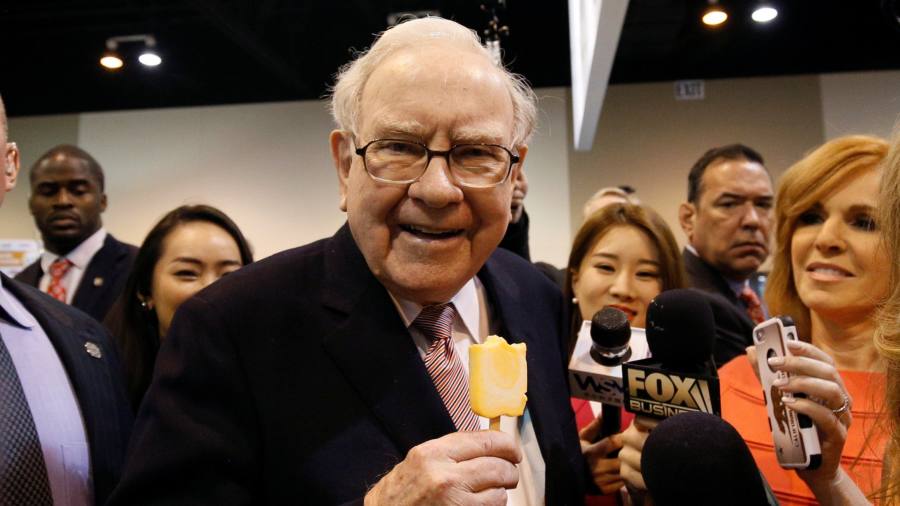Warren Buffett’s long record of picking winners made him a welcome presence last month in Tokyo. A recent move to increase the stakes held by Berkshire Hathaway in five general trading companies has been hailed as a vote of confidence in the country’s long-ailing corporate sector.
Buffett, who began accumulating stakes in the so-called sogo shosha three years ago, sees the shareholdings as a bet on a handful of neglected enterprises that are set to make attractive profits.
In between audiences with some of the country’s leading businessmen, the famed investor found time to expand on his impressions. “I’m just astounded,” he said of the five companies in which he now owns an identical 7.4 per cent stake. “They’re all different, and they’re all the same at the same time.”
It is not easy to supply a more informative description of Japan’s trading companies. Each is a globe-spanning corporate empire of baffling diversity, encompassing such disparate activities as apparel design, convenience store retailing and construction.
One thing that all five companies have in common, however, is a focus on commodities trading — a fact that makes their cash flows unusually sensitive to the value of the dollar, as well as to the price of commodities such as minerals, grain and oil.
The foreign currency earnings of the sogo shosha, backed by hard commodities from sources around the world, set the trading groups apart from companies with revenues and costs that depend more heavily on prices in domestic markets. They create multiple ways for Buffett to profit from his investment, even if the trading companies’ vaunted plans to reinvent themselves for a world without fossil fuels do not proceed as planned.
Among the most tantalising is the fact that Buffett has bought shares in companies that earn a portion of their profits in dollars, while funding his purchase with long-term debt denominated in yen.
If the Japanese currency were to depreciate, the dollar value of Berkshire’s outstanding yen-denominated debt would fall. At the same time, the value of the sogo shosha stakes in dollar terms may not decline so much because of their foreign currency earnings. If the value of the debt falls more than the shareholdings, then Buffett could reap a profit even without much change in underlying business performance
It is surely not Buffett’s intent to bet against the yen. And using borrowed money to buy stock in companies with significant foreign earnings is not, of course, the most practical way to do this. Set that misgiving aside, if only for a thought experiment, and you can see how a trade like Buffett’s might in theory look attractive to a very different kind of investor.
Speculators of an atavistic bent are eyeing the monetary institutions of the developed world with increasing suspicion. Gold is trading near all-time highs, and while a rupture in the systems of economic exchange may not be anyone’s base case, it lies uncomfortably close to the universe of historical possibility.
Ray Dalio, the Bridgewater founder whose investments are informed by a close reading of economic history, notices a striking pattern in the rise and fall of the “reserve currency empires” of the past 500 years. Throughout that time, he writes, “seismic shifts always took the form of too-large debts that couldn’t be paid with real money so there was a lot of printing of money.” That, in turn, “led to big debt restructurings via writing down and monetising debt”.
Such prospects seem remote in Japan, which has navigated the highest ratio of public debt to gross domestic product in the G7, enduring a stagnant economy but no serious upheaval.
For much of that time, its central bankers have tried to kindle the kind of low but steady inflation that propelled economies in the industrial west. Despite trillions of dollars worth of bond purchases and years of negative interest rates, price rises had until recently proved elusive. Monetary policy is now expected to tighten.
Buffett is no doubt more focused on the trading companies’ increasing profits than any possibility of currency arbitrage. With the possible exception of King Midas, whose mere touch could turn objects into gold, it is hard to think of anyone who seems as temperamentally unsuited to selling any financial asset short. Yet investors are judged by the money they make rather than the stories they tell. When a sage like Buffett stakes his fortune, it is worth paying attention to the circumstances that would make his bet pay off.
Read the full article here




